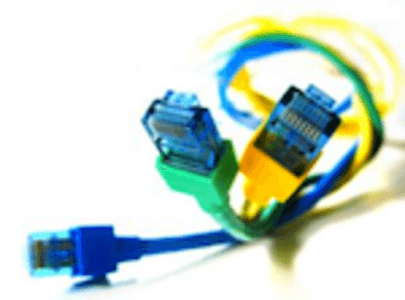Are you ready for IPv6? Did you know you’d better soon be ready? Is your ISP, or even country ready, and do they know why?

If you don’t even know what IPv6 is, you are not alone. There are billions of people who don’t know, and they shouldn’t, since this fundamental protocol – IPv6 being the latest version of IP, invented in the 1970s by Vint Cerf and Bob Kahn – is so deeply buried in the Internet services we use every day that when you are forced to see it, you know something is very, very wrong.
Guest author David Orban is the Chairman of Humanity+, an organization dedicated to promoting understanding, interest, and participation in fields of emerging innovation. He is Advisor to the Singularity University, founder of both WideTag, Inc and Startupbusiness, is a Scientific Advisory Board Member for the Lifeboat Foundation, a nonprofit organization dedicated to encouraging scientific advancements while helping humanity survive existential risks.
Well, something is very, very wrong. We are quickly running out of IPv4 addresses, and what this means is that, simply put, the Internet will be clogged. It will not be possible to add new devices to it, no new computers, mobile phones, consumers, corporate users, nothing in addition of what is already connected.
The projections are for the last sizable chunks of numbers to be allocated to providers around May 2011, who then will hand them out, at ever diminishing rates to their customers.
If you are an individual, it will be of course the responsibility of your provider (the Comcasts, Verizons, if you are in the US, or BTs, for example, if you are in the U.K.), to make sure that your new cable modem, or next year’s iPhone model will keep working. And if you trust them, you can stop reading. But if you are a corporate user, or if you think that an additional voice being heard actually matters, then keep reading!
Vint Cerf, the father of the Internet, is now employed by Google with the title of Evangelist, to go around the planet and raise awareness about the numerous issues that surround the healthy development of his creation. He was in the U.K. yesterday, and somebody on Facebook commented “ah, that’s why he wasn’t in China at an other meeting he was expected to attend” to talk at the launch of 6UK.
Here is a video of Vint’s talk:
6UK is is a not-for-profit membership organization that helps the U.K. secure every competitive advantage available from the rapid adoption of the new Internet protocol, and to make sure no segment of U.K. industry and the wider society gets left behind.
A worthy goal – even more so if you consider that, according to a research by Google, the Internet generated over £100 billion worth of business last year in the U.K., contributing to over 7% of its GDP. David Cameron, the Prime Minister of the U.K. announced that his government wants to build and deploy within 2015 the best, and fastest broadband network in Europe.
Neither the business, nor the network can happen if the transition to IPv6 doesn’t happen in a planned, orderly fashion.
Address translation and address trading are useful for extending the use of IPv4 as temporary measures.
The transition has to be done in a planned way, and not in a panic. Even if among 6UK’s stakeholders there is BIS, a department of the Ministry of Communication, there is no direct government intervention being planned, with the government only providing guidance, and leadership (and as explicitly mentioned in the conference, substantial incentives through its purchases), and the private sector must recognize that the migration is in its own best interest.
The Internet is already everywhere, and it is becoming even more widespread with the development of Internet of Things applications. Neelie Kroes, the Commissioner responsible for the EU’s Digital Agenda, wants all cars to be Internet-connected.
The migration from IPv4 to IPv6 will be a long process, and through temporary technical solutions like address translation, and NAT (hated kludges complicating the networks, and making the development of exciting and disruptive applications like Skype more difficult) the two can and will coexist.
Won’t the same problem present itself again with IPv6 also running out of available space? Well, never say never, but it will be a long time certainly before that happens. The available range of IPv6 numbers, three hundred forty undecillion (thanks, Wolfram | Alpha!), is so large, that it is difficult to find analogies to make any sense of it.
So here’s my attempt, let me know if I succeeded. Instead of struggling to go beyond assigning a unique IP number as needed to merely a few billion mobile phones and computers, let’s be more ambitious, and squander the new abundance. Let’s assign a unique IP number to each cell in the human body! You’d think we’d run quickly out, but not so: we’d be able to manage a septillion (one million billion billion) humans… And without resorting to NAT!
Are you eager to start to do something? Head over to www.ipv6actnow.org to learn what you can do today!
Photo by thesaint









